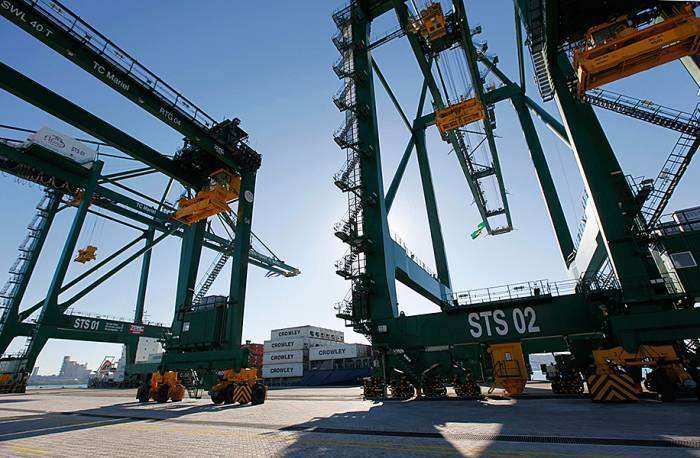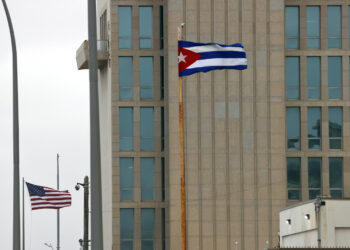New provisions on payment to workers in companies with foreign capital, their contribution to Social Security, and the functions of the employer entities will come into effect today as part of the regulations published in the Extraordinary Official Gazette No. 53, which give continuity to Resolution 16/2014 of the Ministry of Labor and Social Security, complementary of Law 118 of Foreign Investment.
These are three resolutions of the ministries of Labor and Social Security (MTSS by its Spanish acronym), Economy and Planning (MEP by its Spanish acronym), and Finance and Prices (MFP by its Spanish acronym), of which Vladimir Regueiro, MEP Revenue director; Zamira Marin, MTSS vice minister and Deborah Rivas, Foreign Investment Director General of the Ministry of Foreign Trade, provided details at a press conference.
Zamira Marin referred to Granma newspaper this morning that Resolution No. 42, issued by MTSS establishing a change in wage formation which will involve an increase in the income received by these workers, something that was made so far in a centralized manner from salary scales approved in the country.
Now the payment will be agreed with the business of foreign capital taking into account the wages paid to positions of similar complexity in companies in the same industry or sector of our geographic area, the wage scale that applies in the country (as a reference) and some additional payments corresponding by law.
The Foreign Investment Law dictates that payment to workers will remain in Cuban pesos (CUP), however, negotiations between the employing entity and the company with foreign capital to agree the basis of the wages will be in convertible pesos (CUC).
“Everything agreed upon on salary will be received by the worker doubled in CUP, although at the time of receiving the money, 9.09% is already discounted for the payment of the holidays,” Zamira Marin said when referring to Resolution No. 42, which sets into two the coefficient to take into account for the payment of such wages, whereby each CUC will be equivalent to two CUP.
The Extraordinary Official Gazette No. 53 makes clear that these measures will not affect the worker in any case, as his salary won’t ever be below than the one received or the average wage in the country, which will be considered the minimum.
On the operation of the employing entities, the regulation 920 of MEP provides that these will receive by their services a value not exceeding 20% of salary for each position.
That amount is not included on the wages of workers, nor affects them, but it is intended to cover the costs of managing of the entities to ensure the supply of skilled labor force, which implies its recruitment, training and development, and a profit margin.
Regarding the contribution to Social Security, Vladimir Regueiro explained that the tax rate applied to each worker shall be related to the magnitude of the increase of their salaries, and will range between 1 and 5%.
This contribution will not be made on the increased part of the wages, but on the total income calculated using these new conditions.
Regueiro said the way of paying this contribution is designed not constitute an obstacle to the worker, as the employing units will be the ones retaining the percentage that corresponds to the contribution when each payment to occur without the worker having to go to the bank or the offices of the Tax Administration.
Regarding employing entities, the main change lies in their role, which will no longer be to collect and contribute to the state budget, but to pay wages from what was agreed between them and the company of foreign capital, selecting and preparing workers, as well as ensuring their rights under the existing labor laws in Cuba .
This new wage policy pays tax to the updating of Cuban economic model, and is designed to benefit more than 40,000 workers who currently work in joint ventures and wholly foreign-owned entities, based in the island.









